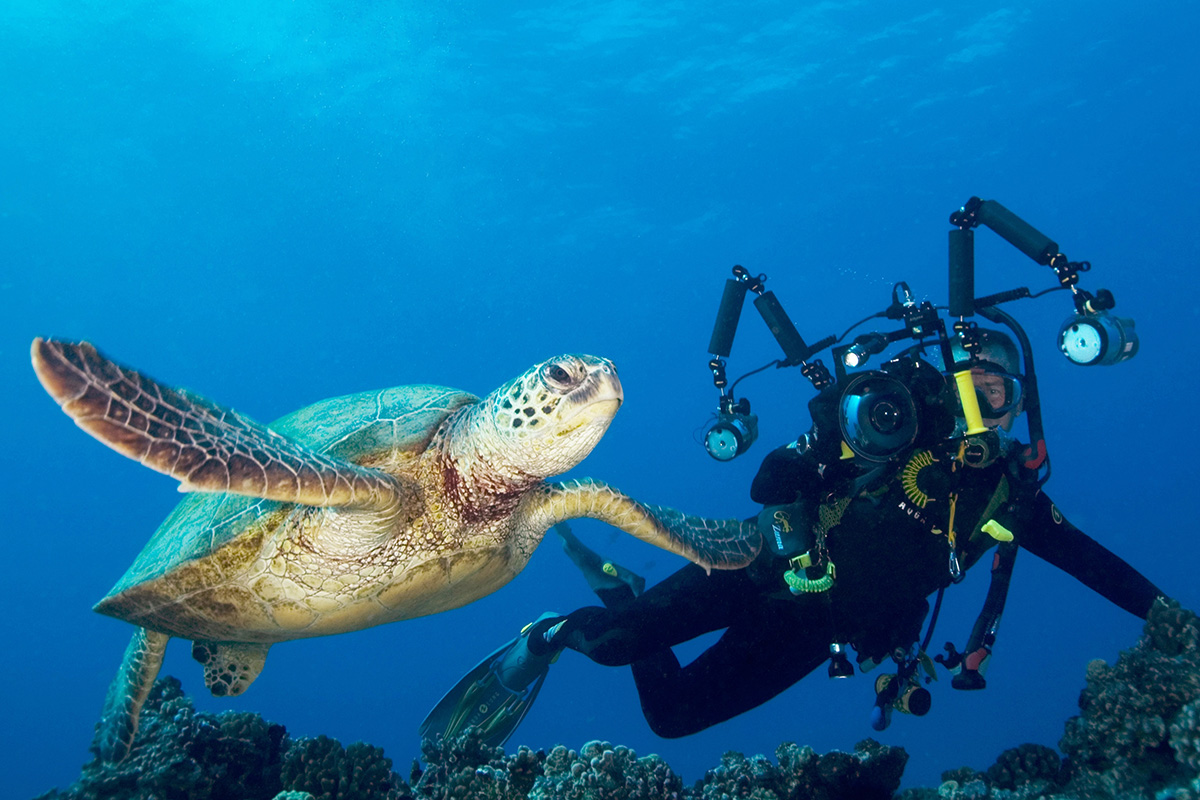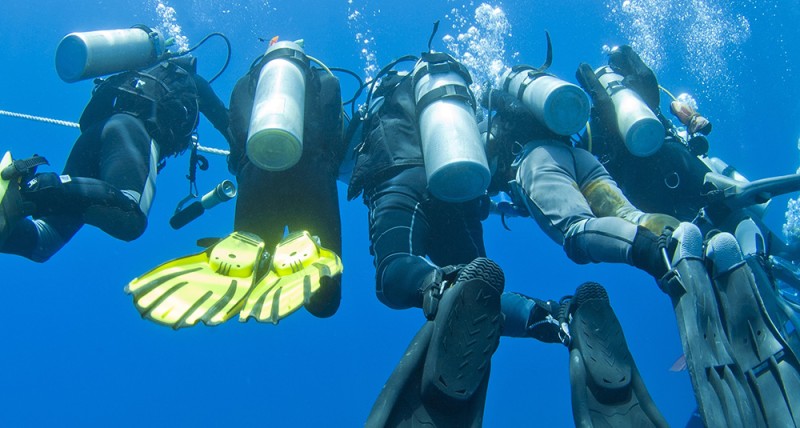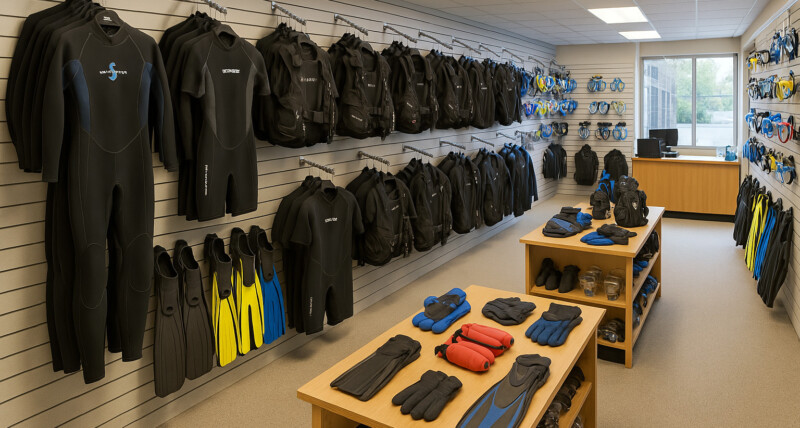For many adults, the idea of learning to scuba dive begins as a whisper—a curiosity sparked by a vacation photo, a travel magazine, or a conversation at a dinner party. Perhaps you’ve stood on the edge of a dive boat, snorkel in hand, wondering what it would feel like to go deeper. Or maybe you’ve long dreamed of gliding weightlessly among coral reefs, far from crowds, with nothing but the rhythm of your breath and the beauty of the underwater world surrounding you.
But something holds you back.
Am I too old to learn?
Is scuba diving too technical?
Do I really want to learn with a group of twenty-somethings on their gap year?
Here’s the good news: Not only is it never too late to learn to scuba dive—but as an adult, you’re often better prepared than you think. And when you choose private scuba instruction, the experience becomes something entirely different: not just a certification, but a life-changing journey tailored to your needs, interests, and pace.
Why Adults Make Excellent New Divers
You may be surprised to hear this from a professional scuba instructor, but many of my best students aren’t fresh out of high school or college—they’re professionals in their 30s, 40s, 50s, and beyond. They’re people who’ve built careers, explored the world, and now want something more immersive. They’re curious, thoughtful, and ready for meaningful experiences.
Here’s why adult students often thrive:
Patience and focus: Adult learners are often more attentive, goal-oriented, and detail-focused.
Emotional regulation: Mature students tend to manage nervousness better and respond more calmly to challenges.
Motivation: You’re doing this because you want to—not because someone else told you to.
Access to private instruction: Many adults prefer the comfort and pace of one-on-one or small-group learning, which is often out of reach for younger students.
You bring life experience, confidence, and a deep appreciation for quality. That’s a powerful combination for success underwater.
Starting Out: The Decision to Begin
Making the leap from curiosity to certification can feel big. But like most things worth doing, it starts with a conversation. Private scuba training offers a chance to talk through your questions in a relaxed, non-salesy environment.
Typical questions I get from adult beginners include:
Can I train in my own pool or preferred destination?
Is it weird to learn scuba as an adult?
How long does it take?
Do I need to be athletic?
The answers?
Yes, no, about 3–4 sessions, and absolutely not. If you can swim comfortably and are in reasonable health, you can learn to dive.
What the Training Process Looks Like
Your scuba certification generally includes three components:
1. Knowledge Development (Theory)
You’ll begin with a self-paced online course (also known as eLearning). This covers essential topics like:
How pressure affects the body underwater
The role of each piece of equipment
Underwater communication and hand signals
Dive planning and safety procedures
Because it’s digital, you can complete it at your own pace—perhaps curled up with a glass of wine in the evening or while traveling for work. With private instruction, your trainer is available to answer questions, clarify concepts, and even meet in person if desired.
✦ This stage builds comfort through understanding. For many adult learners, it’s empowering to know the “why” behind every skill.
2. Confined Water Training (The Pool Session)
This is where it gets real. You’ll be introduced to scuba gear, learn how to breathe underwater, and practice essential skills like:
Mask clearing
Regulator recovery
Buoyancy control
Hand signals
Basic emergency procedures
Your first breath underwater is unforgettable—a surreal, almost meditative moment. Some students feel immediate joy; others need a few minutes to relax. Both reactions are completely normal.
✦ In private lessons, you have time. If something doesn’t click right away, you can pause, ask questions, and repeat until it feels second nature.
This session is where confidence builds. You learn that you can breathe underwater. You learn how to stay calm, communicate, and move gracefully. And most importantly, you begin to feel like a diver.
3. Open Water Dives (Your First Real Adventures)
The final part of your training includes four open water dives—often completed over two days. These are done in a calm ocean, spring, quarry, or lake, depending on your location.
You’ll apply everything you’ve practiced: descending and ascending, maintaining buoyancy, navigating a basic dive, and responding to simulated situations.
In a private setting, you’ll choose your dive site carefully—perhaps a tropical location during a vacation or a local spring with crystal-clear visibility. You’ll never be rushed or asked to dive in a group setting if that’s not your preference.
These dives are not just tests—they’re milestones. You may see a sea turtle glide past, hover over a coral garden, or experience a moment of pure quiet you’ll remember forever.
Real-Life Example: A Client’s First Dive Vacation
Earlier this year, I had a client who chose to do his Open Water training aboard a luxury cruise ship itinerary. We planned his eLearning in advance, met for a few confined water sessions at a private pool near his home, and completed his open water dives in Bonaire, Curaçao, and St. Vincent—all during a 12-night cruise on Explora Journeys.
Each morning, we met at the pier, joined hand-picked local dive operators, and returned to the ship in time for spa appointments, gourmet meals, and a sunset cocktail at the aft bar—where the ship hosted a nightly LGBT-friendly meet-and-greet.
✦ He told me afterward, “This was the first vacation that felt both adventurous and indulgent. I learned something completely new and never once felt uncomfortable or rushed.”
Overcoming Common Concerns
Let’s address a few myths:
“I’m too old.”
Scuba training is designed for people of all ages. Most dive instructors will tell you they’ve certified students well into their 70s.
“I’m not athletic.”
Scuba doesn’t require strength or stamina—just comfort in the water. If you can swim and tread water, you’re already halfway there.
“I’m nervous.”
That’s completely normal. In private sessions, we move at your pace. The environment is calm, quiet, and fully focused on building trust.
“I’m worried about group dynamics.”
That’s why you’re learning privately. No crowds. No pressure. No trying to keep up. Just you, your instructor, and the water.
What Happens After Certification?
Once you’re certified as an Open Water diver, you can dive anywhere in the world to depths of 60 feet (18 meters). But more than that, you’ve unlocked a new way to travel, to experience nature, and to connect with others.
You might choose to:
Take an advanced course (Night Diving, Wreck Diving, Deep Diver, etc.)
Book dive travel to the Maldives, French Polynesia, or Belize
Plan romantic dive experiences with a partner
Integrate diving into your wellness and relaxation routine
Pursue private underwater photography lessons or conservation dives
Your certification is just the beginning.
The Deeper Reward: How Scuba Changes You
What surprises most adult learners isn’t the diving itself—it’s how it makes them feel.
Diving teaches calm. Focus. Trust in your breath. It builds confidence in unfamiliar environments and reminds you of how vast and beautiful the world really is. For many, it becomes a practice as much as a pastime—a way of reconnecting to their sense of wonder.
It also brings people together. Whether you’re diving with a friend, a spouse, or privately with an instructor, there’s a shared language and joy that few other activities offer.
Your First Step Starts Now
If you’ve been thinking about scuba diving for years—or even just for a few minutes—you owe it to yourself to explore what’s possible.
Private instruction allows you to train in comfort, on your schedule, and at your own pace. You’ll gain a lifelong skill, a global passport to adventure, and a deeper relationship with yourself and the natural world.
So, take the plunge.
Because the underwater world is waiting—and you’re more ready than you think.
Want to Learn More?
I offer private scuba training for adults across Florida and worldwide by request. Whether you want to learn locally, during a luxury vacation, or on your next cruise, let’s talk about creating a comfortable, personalized learning plan just for you.
Ready when you are.




